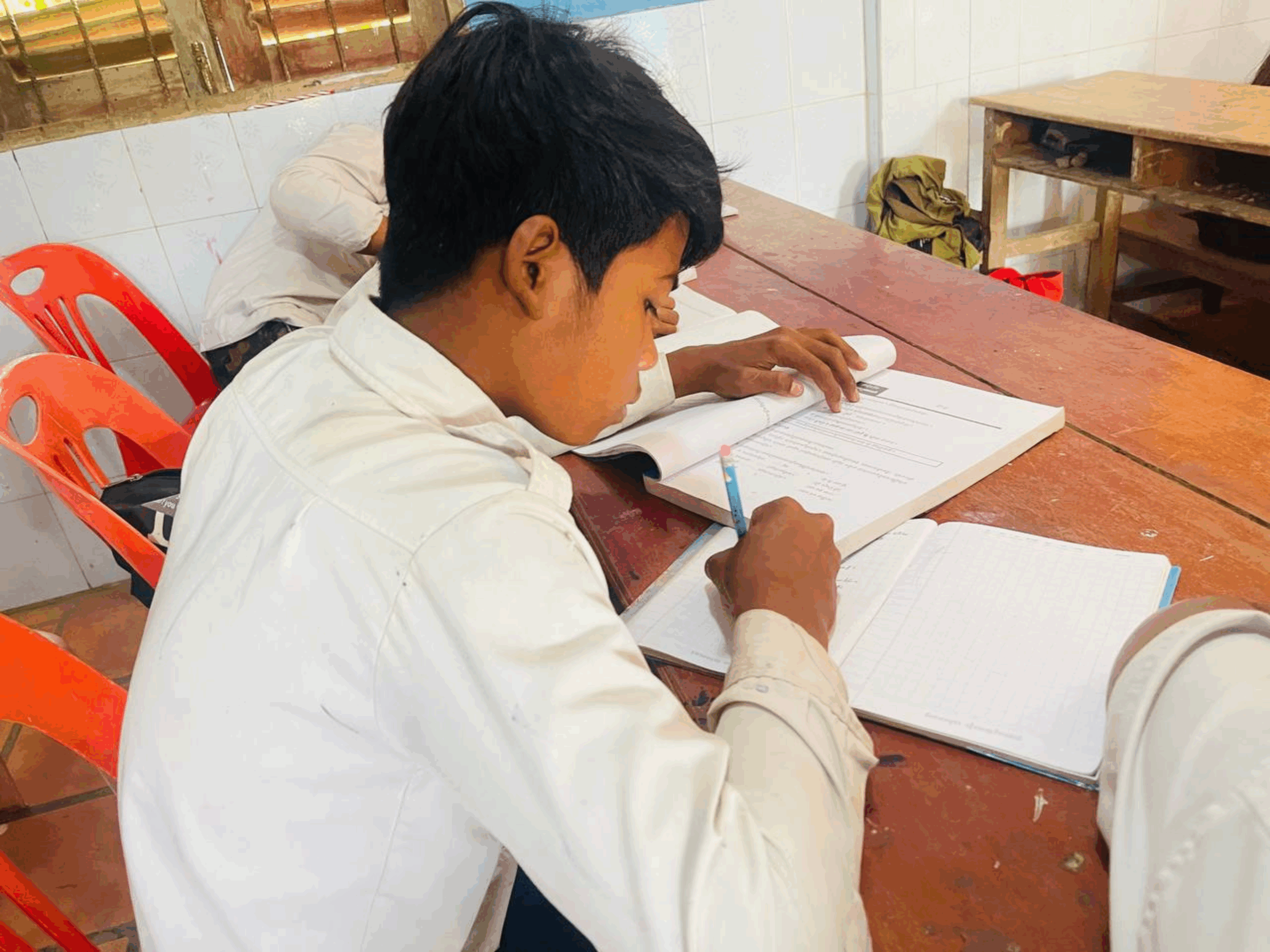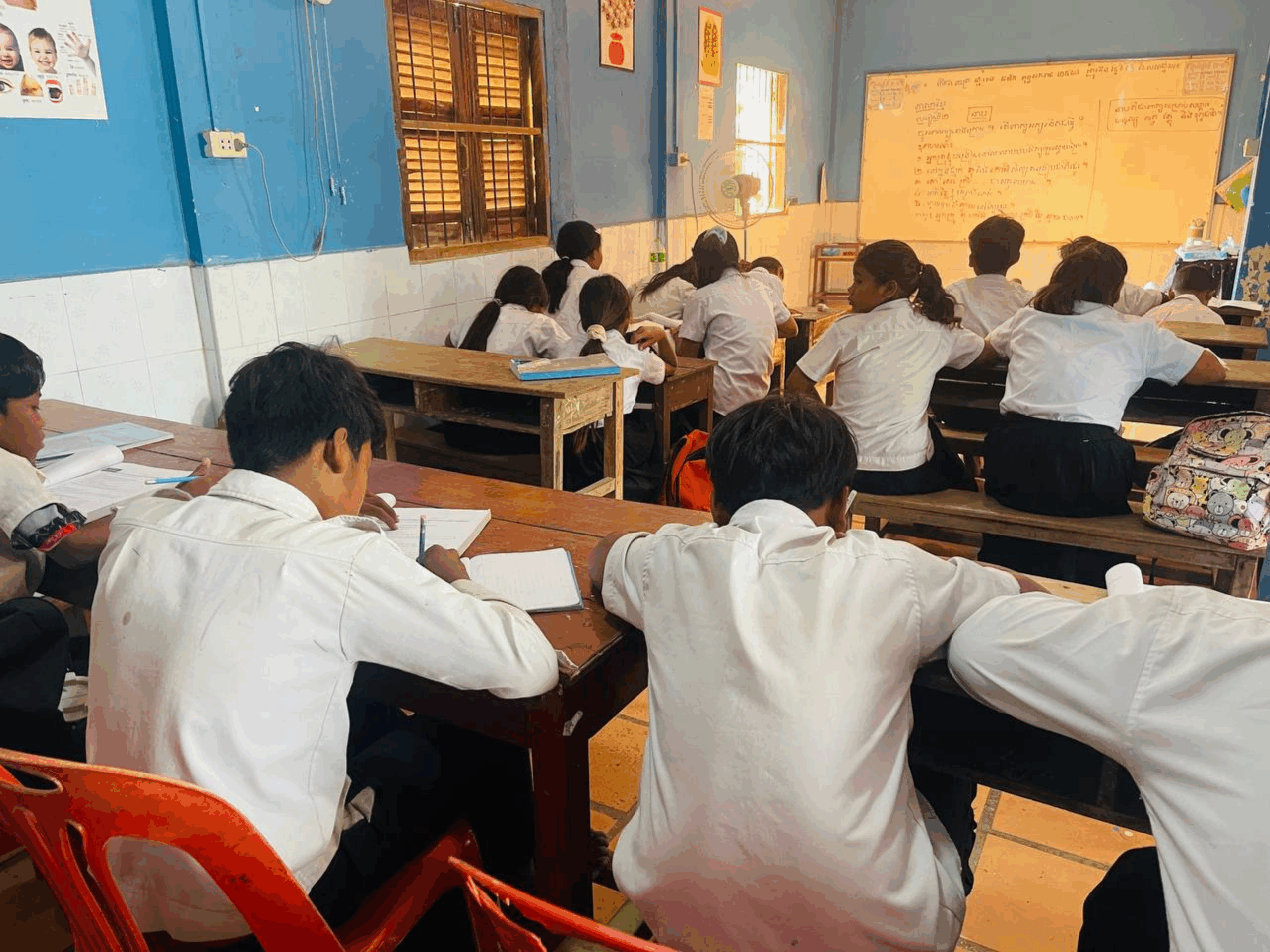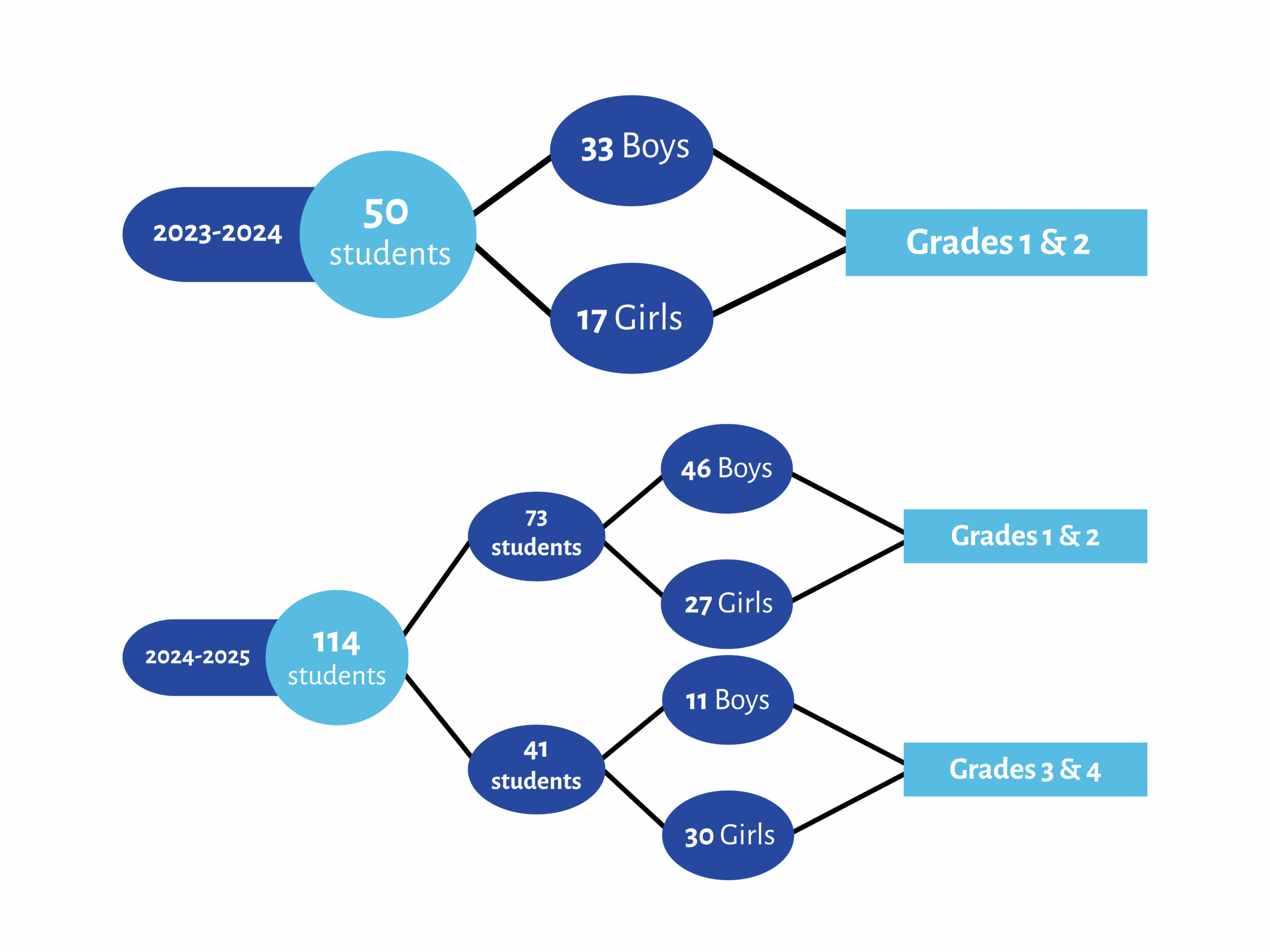The education system in Cambodia has undergone significant development over the last decades, and the quality of education is still evolving. However, the sector’s main obstacle continues to be lack of resources, resulting in a set of challenges that have become embedded in the public school system. This includes an acute shortage of qualified teaching staff, reduced morale due to low salaries and a lack of suitable teaching materials. While the national primary net enrolment rate is 91% and the primary completion rate is 90%, many children still are not enrolled. Others are enrolled but their attendance is irregular because they are expected to help their families at home or in the fields or to work on the streets. As a result, a large proportion of children are required to repeat grades, therefore, extending the duration it takes for the average student to complete primary school. Sadly, many children do not make it that far.

Damnok Toek’s Education project in Poi Pet aims to provide access to education for vulnerable children who are from the community, street-living, street-working, victims of trafficking or residing in Damnok Toek’s Alternative Care facilities. Damnok Toek facilitates direct enrolment and the reintegration of students into public schools. However, many of the children are unable to directly enter the public school system due to having a limited to no previous experience attending school, which makes it easy for students to fall behind if they are not prepared. Therefore, Damnok Toek’s Non-Formal Education project allows students to access education and holistic support to be able to eventually integrate into the public school system. Furthermore, Damnok Toek provides Accelerated Learning, as part of the Non-Formal Education project, which is an alternative way to prepare children to integrate into the public school system more quickly.

Children enrolled into Damnok Toek Accelerated Learning classes have most often not previously attended school and range in age from 8 years old to 15 years old. Older children can find it very challenging to learn in classes where there are much younger children, and this increases risk of frequent absenteeism, low motivation and drop out.
Accelerated Learning facilitates a learning environment where peers are more similar in age and can receive accelerated Learning to fast track them through grades so that by the time they integrate into public school they are at a similar age and stage of educational development as their class peers.
Following the success of the Consortium for Out of School Children, Phase I, Damnok Toek continues to employ strategies to ensure equitable access to education for all children in target communities in which the organisation works. In 2025, Damnok Toek has increased its emphasis on strengthening the Accelerated Learning services in Poi Pet, and is now also offering Accelerated Learning classes for grades 3 & 4; supplementing the existing two accelerated classes for grades 1 & 2.
Ms. Morm Sokunthea, teacher of one of the Accelerated Learning classes, tells: “These classes offer significant advantages for students, particularly in terms of time efficiency. This is because students can complete their education in a shorter timeframe, allowing them to graduate sooner than their peers in regular NFE classes”.

She continues to say: “Some students prioritise work over education because their families expect that they contribute financially. Therefore, I monitor the students’ educational and emotional wellbeing to identify those in need of additional support. Moreover, during regular parenting meetings I address concerns and reinforce the significance of education for children”.
Accelerated Learning classes in Numbers
The Non-Formal Education project, as an academic bridging mechanism, has also shown a great success in academic progression. By the end of 2024, 39 out of 50 students (78%) successfully passed their exams and advanced to Grade 3; showing the effectiveness of the Accelerated Learning model in helping students catch up and transition into formal education.

Accelerated Learning classes have demonstrated strong results in helping students advance through grade levels faster and efficiently. In the academic year of 2023-2024, there were 50 students enrolled in grades 1 & 2, with 17 of them being girls. In 2025, as the program expanded, the number of students increased to 114 in total, with 73 students (27 of them girls) in grades 1 & 2 and an additional 41 students (30 of them girls) in Accelerated Learning grades 3 & 4 classes.
By expanding the Accelerated Learning model, Damnok Toek is not only educating children; but is also transforming lives, empowering families, and shaping a future where every child has the opportunity to learn and thrive.